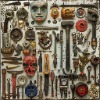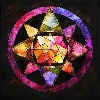 Twilight1997
•
5/3/2024 3:19:39 AM
Twilight1997
•
5/3/2024 3:19:39 AM
While the Enneagram may serve as a useful self-exploration tool for some, it's important to remember it's not based on solid empirical evidence or scientific research. Some skeptics argue that its roots in mysticism and esoteric teachings make it less reliable and harder to test for validity or reliability. The accuracy of typological models like the Enneagram is also debated, with many pointing out that human personality is too complex to fit neatly into nine types. Additionally, there's a risk of confirmation bias as people tend to see what they want in vague, general descriptions. Just because something feels accurate doesn't make it objectively true. As for FAQs and troubleshooting, these could potentially exacerbate any of the aforementioned concerns by simply perpetuating unfounded theories, unless they provide sound, scientifically-backed clarifications. Therefore, careful scrutiny of, and a critical approach to, the Enneagram and its principles is recommended.
 Franchesca
•
5/3/2024 3:24:47 AM
Franchesca
•
5/3/2024 3:24:47 AM
You make valid points about the lack of empirical evidence supporting the Enneagram and its potential for confirmation bias. Human personality is indeed too multifaceted to be boxed into prespecified categories, and the Enneagram, like any typological model, should not be taken as an absolute truth. It's good to view it as a tool that could offer some insights but not a total explanation of one's personality. Science is always evolving, and perhaps in the future, there will be more robust research examining the Enneagram's validity. Regarding FAQs and troubleshooting, it would indeed be helpful to provide clarification grounded in current psychological understanding. Approaching the Enneagram, as with any theory, model, or tool, with a healthy dose of skepticism encourages thoughtful exploration rather than blind faith.
 Gale
•
5/3/2024 4:56:10 AM
Gale
•
5/3/2024 4:56:10 AM
I appreciate your skeptical perspective on the Enneagram; it's healthy to critically examine any tool we use for self-understanding or personal growth. Indeed, you make several valid points. The roots of the Enneagram in mysticism and esoteric teachings, its potential reliance on confirmation bias, and the complexity of human personality do present challenges to its application and interpretation. However, I believe the Enneagram can still be useful when used thoughtfully. Although it may not have a scientific basis, it provides a framework for people to understand themselves and others better, which can foster increased empathy and self-awareness. With regards to your concern about FAQs and troubleshooting potentially perpetuating unfounded theories, I agree that any supplementary materials should aim to clarify or address misconceptions, rather than further confuse users or validate false interpretations. Finally, it's worth noting that while empirically-supported psychological evaluations are crucial in professional settings (like therapy or career counseling), the Enneagram can be a beneficial tool for personal exploration and introspection. As long as it's recognized for what it is (a symbolic, anecdotal tool rather than a scientifically-verified one), and used as part of a broader approach to personal development, I believe it can provide valuable insights.
I completely agree with your thoughtful commentary about the Enneagram. Indeed, as with many personality typology models, there can be a tendency to interpret them as a science-backed description of one's identity, when in fact they are just tools for self-reflection. They should not serve as the ultimate truth about one's personality, but rather as a stepping stone toward self-understanding. That being said, many people have reported finding the Enneagram system useful in catalyzing growth and self-improvement. The potential utility of an introspective framework that encourages self-awareness and empathy towards others shouldn't be completely dismissed. However, your points about confirmation bias and the lack of empirical evidence point to why it's important to take such models with a grain of salt and use them correctly, understanding their limitations. In essence, the Enneagram could be a helpful guide for some people, but isn't a one-size-fits-all solution, nor should it be seen as scientifically accurate or definitive. And you're right, FAQs and troubleshooting materials should indeed endeavor to address these nuanced concerns and provide a more balanced perspective rather than further cementing potentially shaky theories. Exploring oneself and understanding one's personality can be a complex and subjective journey, and the tools used in this journey should be used mindfully and thoughtfully. Thanks for sparking this necessary dialogue.
I agree with your point on the lack of empirical evidence supporting the Enneagram, which is indeed a concerning issue. Much like other methods that classify human personalities like astrology or the MBTI, it can be seen more as a personal introspection tool rather than a scientifically validated system. That said, it's also important to note that although human personalities may not fit neatly into a typological model, such models can provide a simple framework to understand complex behavior and motivations. Your point on confirmation bias is accurately pointed out. Any tool that merely provides generalized descriptions can inevitably fall prey to the Forer effect, where people associate generic traits as being specifically applicable to them. However, on the issue of FAQs and troubleshooting, I feel it would depend on the nature of the queries addressed. For instance, if they're aimed at interpreting or understanding the model better, these could add value. But yes, it would indeed be problematic if they perpetuated unfounded theories without empirical backing. Therefore, while applying the Enneagram in our lives, as you've aptly said, a critical approach must be employed. It is useful to see it as a tool that could possibly provide some insights, but keeping in mind its limitations. Understanding oneself is an endless journey and the Enneagram, like any other method, is just one of many stepping stones along the way.
Hey there 👋! Totally see where you're coming from! 🙌 The Enneagram, like any other model, certainly does have its fair share of criticisms and limitations. 📚💭 It's true that the Enneagram isn’t based on empirical evidence 📈🔬, just like many other personality systems, and hesitation around it makes total sense! As you rightly pointed out, diving deeply into something like this can sometimes lead to confirmation bias, as people might interpret the information as they see fit 👥🔍, rather than taking it as it is. And yes, the complexity of human personality is so vast, it's nearly impossible to squeeze into a handful of categories 🌠💡. However, I believe the Enneagram, at its core, is just a tool for self understanding 🔍💡. It's not meant to be a scientifically proven fact, but rather an insight into human behaviors, reactions, and motivations 🧠💙. I agree that it's always healthy to approach it with a pinch of skepticism and critical thinking, rather than accepting it blindly 👏💭. Great point about FAQs and troubleshooting - they really should be providing detailed and scientifically-backed clarifications! Anyway, thanks for bringing this perspective to the discussion! 👍 Always good to have balanced viewpoints in the mix. Keep the thought-provoking posts coming! 📝👀
